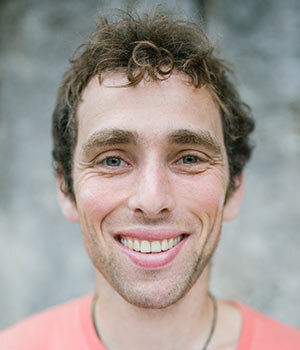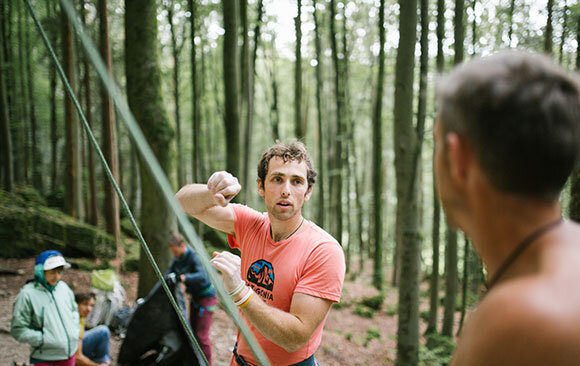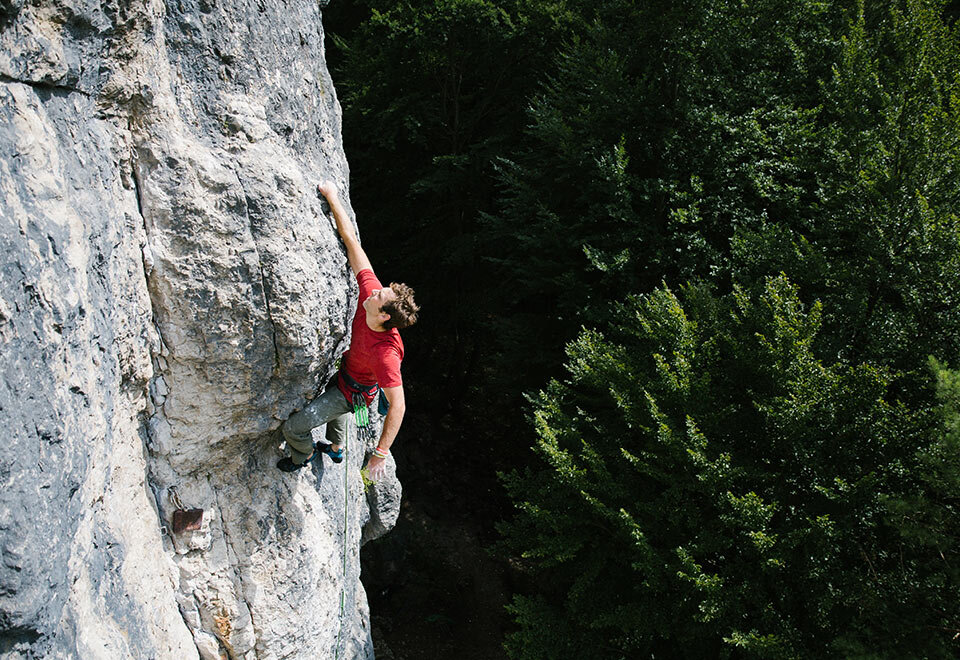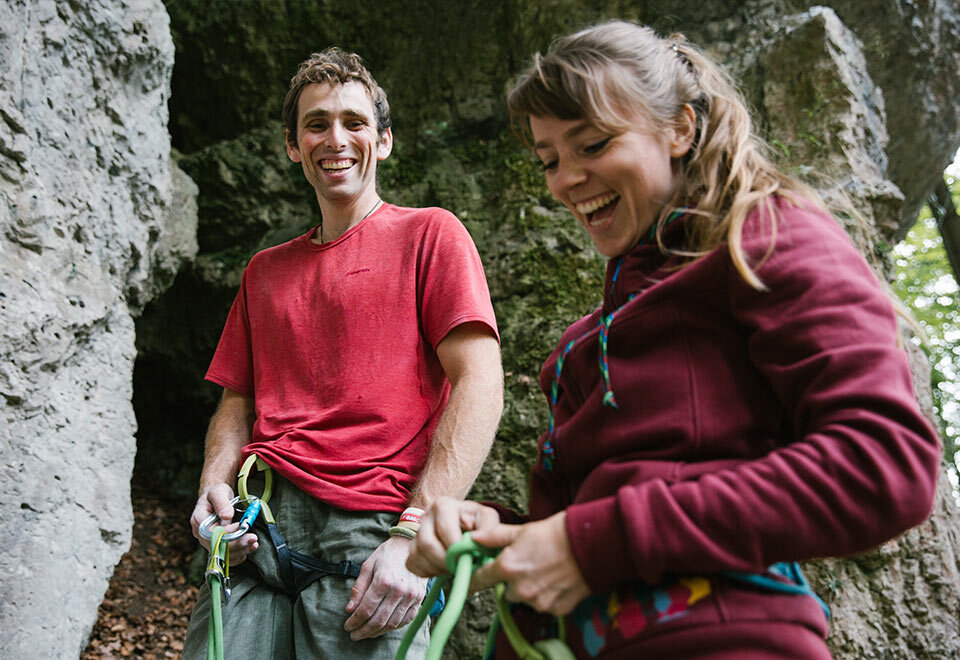When and how did you get into climbing? What keeps you interested? What fascinates you?
I got into climbing through my school but what kept me interested initially was meeting really cool people who were like-minded and showed me the beauty of climbing.
I was always climbing with people much older than me which I think helped massively with my social development as a kid, however saying that, only hanging around climbers who talk about climbing non-stop maybe stunted me socially as now I can't talk to anyone about anything BUT climbing!!! Hahaha!
I think what really attracted me to climbing was that it wasn't all about being strong; there is always a way up the wall without pulling yourself up. I began climbing at 15 and all the young climbers at the wall were waaaaay stronger than me. The difference was that I couldn't do one arm pull ups or hang from small edges with one hand, but I would find heel hooks, toe hooks and knee bars and use them to shimmy my way up the wall where all the others tried to pull themselves up! I learned that climbing was more about technique and state of mind than anything else :D
The next big step was venturing outdoors... as soon as I went on my first big climbing trip to Kalymnos, I knew that this was it for life! How could I love anything else any more than this? It was the greatest thing on earth, it took me to the best places on earth and I hung out with the best people on earth!!!
Who was your childhood hero? Do you consider yourself a role model now? Does it influence you at all that other people look up to you?
When I was young I loved the idea of being like Chris Sharma! He was my hero! But really it was those around me who really inspired me and drove me to becoming the climber and man I am today.
I'd say in climbing I owe the most to two of my best friends, Neill Busby and Neil McGeachy. They were and still are my mentors in climbing and life. They have taught me so much over the years about how to approach climbing in a positive way, how to train and how to get the most out of the sport. They took me places off their own back when I had nobody else and I truly can't ever repay them for what they have given me.
I owe my Mum and Dad so much too, they are both heroes of mine!
My father because he battled through cancer from when I was born and despite this, managed to support a young family and allow me to pursue my dreams in life.
My mother because she supported my ambitions, took me everywhere I needed to be when I was young and even now that I am older is still looking out for me, offering me guidance and support whenever I need it.
What have been the most important milestones in your life so far, both in climbing and in everyday life? And did you recognize them immediately as such or only later on?
I think a big one was leaving University after 6 weeks when I was 18. University was wrong for me at the time and pursuing climbing as a full-time career was what I needed to do! I discovered more about myself and my ambitions in that time and I think it has helped me to see what is important in life and more than anything, how to make decisions that are best suited for me.
Another big milestone was accomplishing "Bellavista" on the Tre Cime de Lavaredo in the Dolomites. This proved to me that anything I put my mind to is possible. The only way you get things done is by getting out and doing it! Another important lesson learned was that "fear" is but a process of the mind (though often quite an important process) and it can be controlled and manipulated to help or hinder your ambitions. I am learning more than ever what it takes to us the powers of the mind in a way that helps me achieve what I want in life and in climbing
What were your greatest failures / setbacks / injuries? How did you cope with them and how did you come back from them?
I have had an ongoing issue with my knees. It holds me back on certain moves right now like drop knees, heel hooks and on steeper walls when pulling on my toes. I rely a lot on flexibility and pulling through my feet so this is actually holding me back a lot at the moment.
I also injured my A2 pulley a few years ago... at the time this felt like a set back but in actual fact was more of an awakening. I got injured by overtraining so it was completely my own fault. I wanted to get stronger than I had ever been before and pursue climbing harder routes and boulders, but I pushed too hard too quick. I had booked a trip to Spain 2 months later, I was not fit or strong when I went out and I was still injured with a sore finger. I spent the next 2 weeks onsighting routes up to 8a+, I climbed about a dozen routes between 8b and 8c and even made a first ascent of a local project called "Tendon House" which I gave 8b+.
On this trip I discovered that climbing on rock does not require much strength or endurance, all you need is technique and an understanding of the rock you are climbing on. Sure strength and endurance help, but technique is far more important and you don't need to pull anywhere near as hard on climbs outdoors thanks to the millions of potential footholds you have :D
What is your favorite climbing related story / experience?
I attempted to free climb a classic slab multipitch route on a beautiful sheet of perfect granite with two of my good friends, Neill and Patryck. We set of a little late, I lead a few of the tricky slab pitches including one that traverses a long quartz band with no protection for ages, but I managed to keep a cool head and get to the belay to bring up the other two. We were set up at the crux pitch belay, about to set off when the sun disappeared and the wind stopped... In any other country this would normally be fine... not in Scotland! Just as we prepared to set off, we were hit by a cloud of midges (tiny mosquito like flies). There was so many biting us we could barely open our eyes! Neill attempted to lead the pitch but climbed for little more than a few meters before evacuating... I attempted then retreated from the same point! The midges were killing us and we opted to abandon our post and abseil off the wall as soon as we could!
We left gear behind, but there was honestly nothing we could do it was that bad! Thankfully another party climbed the route the next day and retrieved our gear for us haha! Neill and I returned last year (2014) and climbed the route... this time midge free :D





